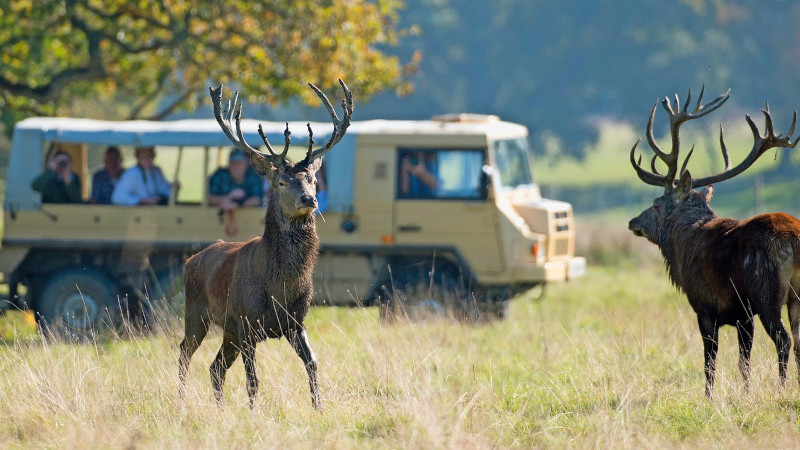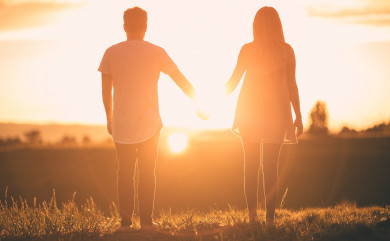Article from Issue #64 (December 7, 2023)
Thoughtful Ideas for Sustainable Gifts that Don't Cost the Earth
by Lucy Siegle

According to an expert blend of anthropologists and psychologists who have studied the mysterious art of gift-giving over the years, the perfect gift has four merits. The recipient really wants it, they enjoy it, it’s appropriate and they wouldn’t buy it themselves. To that list the environmentalist would add “it’s purpose-driven”. By which we mean it hasn’t put the planet under more pressure and it won’t end up being slung into landfill.
Gift-giving is complicated, emotionally nuanced and woven into all sorts of societal pacts. In his seminal 1920s essay The Gift, the grandfather of ethnography, Marcel Mauss, said: “There is no gift without bond, without obligation or litigation.” His decades of research found that gift-giving was a form of power-brokering and social cohesion, and that pretty much every part of society was engaged in it.
So when I suggest wrapping this complex act of communication in yet another layer — making it eco-friendly — my reasoning is this: if you can give something that benefits our society and environment, and all benefit from that, why would you not?
To get a steer on gifts that check these boxes, I looked back at the ghosts of presents past. Here’s your Christmas quiz starter for ten: what was the top touted Christmas gift of 1864?
Answer: Mrs Beeton’s Book of Household Management, price 7s 6d, with gilt edging. If you think Mrs Beeton would work for one of your loved ones, this is still in print (or a first edition goes for about £15,000). Although it might need an update. While Mrs Beeton was certainly purpose-driven, some of her advice belongs to an era when outside space was more readily available. (One of my favourite bits of her advice is that households should always keep aside half an acre of coppiced woodland for emergencies.) For those without that luxury, Isabella Tree’s famous project at Knepp in West Sussex offers safaris (from £75, knepp.co.uk) and encounters with storks, beavers and longhorn cattle. As well as getting a deeper understanding of the miracle of rewilding, this experiential encounter might change someone’s life.
Continuing my historical survey of gifts, I notice that around the First World War presents were primarily utilitarian, perhaps to take the guilt away from present-giving. In 1914 suggestions in the Dundee Evening Telegraph included an alpaca dress for your maid (at appropriate length) and useful bags in real seal or puma. In the interests of avoiding prosecution under wildlife laws tweaks will need to be made, but I think a lovely bag is a good idea.
Given that we live in an age where we have enough clothes and accessories for the next six generations, we need to add an extra dimension: the story. If gifts are all about relationships and bonds, buying a piece from a skilled craftsperson enlarges that relationship circle. If the story of construction and materials is added to the product, the item will be held more dearly, and is likely to stay in circulation for a long time. Kingsley Walters is an exceptionally gifted leather-worker with a workshop in central London whose products combine utility with beautiful design. You could even buy your loved one a course (from £115, kingsleywalters.com) to learn how to work with leather themselves.
When it comes to supporting nature regeneration, cosmetics brands are leading in the philanthropic stakes. You cannot buy an upmarket skin-plumper without saving a stork or investing in a jaguar corridor and I’d like to raise a glass to that. Given that brands source their ingredients from the natural world, it’s appropriate that they’ve started to step up. This year I’m giving products from Chantecaille’s beautiful Wild Mustangs of North America range (£52 for an eyeshadow, chantecaille.co.uk), which supports the conservation work of the American Wild Horse Campaign. These will be given in reusable, customable crackers from Keep This Cracker (keepthiscracker.com). The company’s founder, Bea Thackeray, started her business when she discovered that 100 million disposable crackers were pulled every Christmas in the UK (she worked out that laid end to end they could stretch from the UK to the North Pole eight times).
Globally, less than 2 per cent of charitable donations go towards protecting and regenerating the planet. So the greatest gift you can give is to support the work of groups such as the WWF (which has great merchandise) and Surfers Against Sewage (which offers memberships). Given that psychologists tell us the best way to manage climate or eco-anxiety is to get involved in implementing change, this seems to me the best gift of all. Batteries not included.


 2018 Holiday Clearings Connection Re-Connection
2018 Holiday Clearings Connection Re-Connection Merry Christmas with 528 Solfeggio Frequency Christmas Music
Merry Christmas with 528 Solfeggio Frequency Christmas Music 5 Rules to Creating a Romantic Valentine's Day
5 Rules to Creating a Romantic Valentine's Day